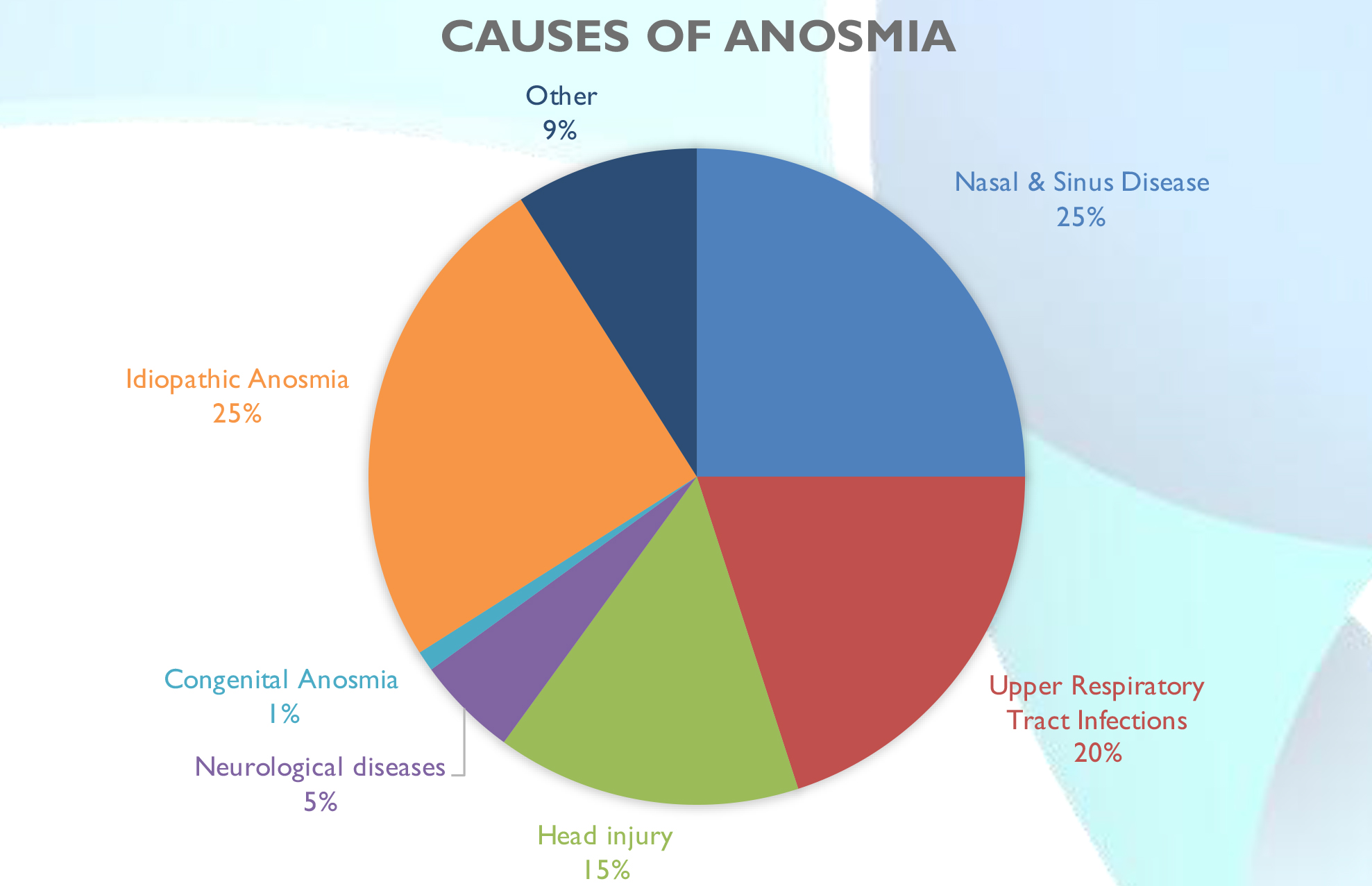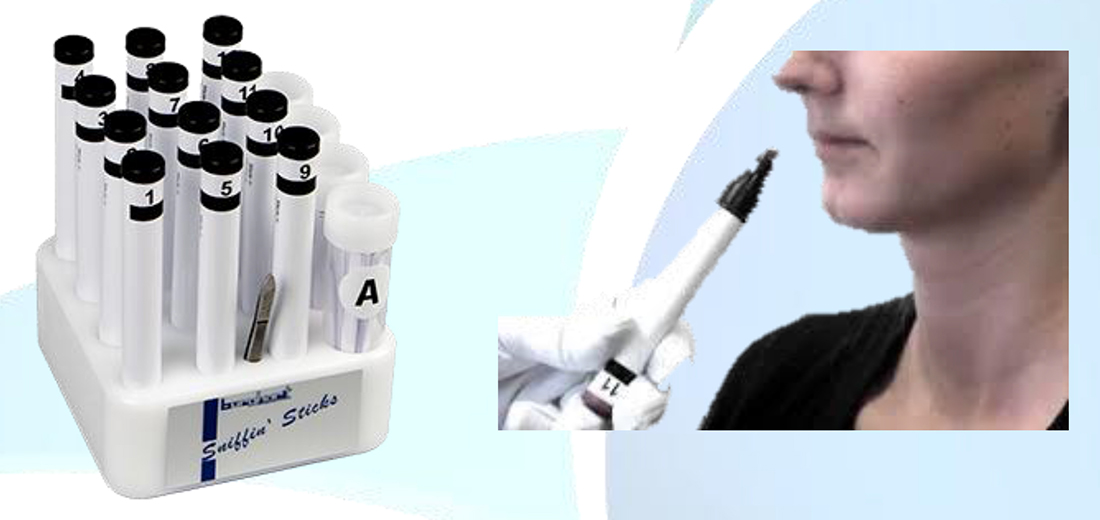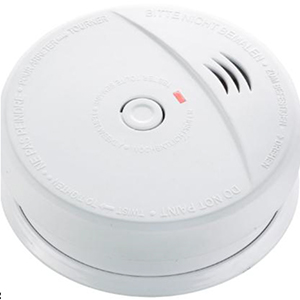Who is this information for?
This information is for patients, families and carers of patients with anosmia.
What is anosmia?
- Anosmia is the complete loss of sense of smell; hyposmia is a reduction in sense of smell. The loss may be temporary or permanent. Anosmia does not usually have a serious cause, but can have a profound effect on a person for life. People with anosmia may not be able to fully taste food.
- Smell and taste are often both affected as most of our taste sensation comes from our sense of smell. Taste is actually detected by receptors on our taste buds, which are found on our tongue and in our mouths. Information about what we taste is collected by these taste receptors and sent to the brain. However, the flavour of our food is largely due to its smell. This is detected by smell receptors in the lining of the nose; the smell of food travels from the back of the mouth into the back of the nose.
What causes anosmia?
- Nasal & sinus disease – eg rhinitis, chronic rhinosinusitis, nasal polyps (25%)
- This is one of the most common causes of loss of smell, and can be shortterm or permanent.
- This can be due to inflammation or swelling of the nasal passages, especially when this involves the presence of swellings known as nasal polyps.
- For these reasons it is very important to undergo an examination of the nose with an endoscopes so that all these possible causes can be evaluated
- Upper respiratory tract infections – eg common cold, influenza (20%)
- Most common in females over the age of 50
- Often results in partial rather than total smell loss.
- Anosmia from this cause most often resolves, though can persist for months
- in one study 80% of patients reported subjective recovery after one year
- Head injury – e.g. whiplash, skull fracture, (15%)
- Head injury that causes a loss of smell can involve major skull fractures, or relatively minor whiplash type injuries.
- The worse the head injury however, the more likely a patient is to have loss of smell.
- Whilst sense of smell may return, it occurs in only approximately 10% of patients.
- Neurological causes – eg Parkinson’s disease, Alzheimer’s (2-5%)
- Diseases of the nervous system, such as Parkinson’s or Alzheimer’s may appear after the onset of a loss of sense of smell.
- It is thought that anosmia may precede the other signs of Parkinson’s or Alzheimer’s by 5 or more years.
- Congenital anosmia – born with no sense of smell (1%)
- Very occasionally, people are born with no working sense of smell.
- Sometimes this may be part of a condition called Kallman syndrome which includes a lack of hormone production in the pituitary gland, which may be associated with fertility issues.
- Sometimes, this occurs in isolation, without any other abnormalities.
- Other causes eg age-related, thyroid disease, liver disease, diabetes, smoking (5-10%)
- Idiopathic – unknown cause (25%)
- This refers to patients in whom after extensive testing no cause for the loss of sense of smell is found.
- Patients in this category may go on to develop Parkinson’s or Alzheimer’s disease
- Idiopathic – unknown cause (25%)

How is anosmia diagnosed?
- Your ENT surgeon will ask you about your current symptoms, medical history and examine your nose.
- She/He will often perform a flexible telescope examination of your nasal cavity and sinuses, to more completely exclude some of the causes of smell loss listed above
- In order to more objectively define your loss of smell and/or taste, your specialist will often objectively test your sense of smell/taste using a standardised kit of odours and flavours that you are asked to identify – e.g. ‘Sniffin’ sticks’

- Depending on the findings, your specialist may perform one or more of the following tests:
- Computerised tomography (CT) scan of the sinuses and skull
- Magnetic resonance imaging (MRI) of the smell area in the brain
- Blood tests for various inflammatory diseases, liver disease, thyroid disease, etc.
What safety precautions shouldI take if I have anosmia?
-
- Have functioning smoke alarms in the homes – you cannot smell smoke!

- Check that gas cookers and barbecues are turned off properly;
- consider installing a Carbon Monoxide – you cannot smell gas leaks

- Carefully label food with expiration dates – you cannot smell spoiled food
- Read labels on chemicals like kitchen cleaners and insecticides
- Ensure that electrical appliances are used as per the recommendations and are turned off when not in use
- Have functioning smoke alarms in the homes – you cannot smell smoke!
If your sense of smell is required as part of your occupation, you should discuss this with your employer or supervisor – e.g. Chef, Tradesman
How is anosmia treated?
- General Measures include:
- Try and maintain nutrition levels by weighing yourself regularly and setting reminders for meal times
- Try and improve the sense of taste: adding concentrated flavouring agents to food or cooking with ingredients that stimulate taste buds that are more colourful or textured may restore interest in food
- Specific Treatment of anosmia depends on the cause
- Upper Respiratory Tract infections: If the loss of smell occurs with a cold, allergy or sinus infection, it will usually clear up on its own although may take several weeks/months.
- Nose and Sinus Disease: Treatments that may help to resolve anosmia caused by nose & sinus conditions include:
- Steroid tablets or nasal sprays/rinses
- Antihistamines (for allergic rhinitis)
- Antibiotics (for bacterial infections)
- Reducing exposure to nasal irritants and allergens – including tobacco
- Mechanical nasal obstruction: Loss of smell caused by nasal obstruction can be treated by removing whatever is obstructing the nasal passage.
- This may include an operation to removal nasal polyps (sinus surgery) or to straighten the nasal septum
- In many cases, there is no specific treatment available, but some novel therapies exist:
-
- Smell training
- This can help speed recovery of smell sensitity and discrimination, increasing smell function in about 30% of patients who undergo this therapy.
- The therapy generally involves taking a deep sniff of four or more odor categories (e.g. flowery, fruity, aromatic, resinous) for 10 seconds, twice a day, for 12 weeks or more.
- See ‘Further information’ below.
- 9% Sodium Citrate Nasal Spray
- Recent studies have demonstrated promise in the intra-nasal use of Sodium Citrate spray, a spray safely already used in medicine in other body cavities.
- In a recent study, 1/3 of patients with anosmia (10 out of 31), who administered 1ml of spray into their nose, experienced a significant shortlived improvement in smell.
- The proposed mechanism is that sodium citrate, when sprayed in the nose reduces local free Calcium ions, leading to a reduction in negative feedback on the smell sensory pathway. This increases the excitability of the olfactory (smell) neurons (nerves), thus temporarily improving the sense of smell.
- Whilst still fairly experimental, the risks of significant side effects are low, and early results suggest that patients may have a short-term improvement in smell, which could be used to at least enhance their enjoyment of meals.
- Further studies are required.
- Acupuncture
- Smell training
-
Concerns or questions?
You can contact your ENT Specialist at the Melbourne ENT Group (MEG):
- Phone: 1300- 952-808
- Email: admin@melbentgroup.com.au
- Website: www.melbentgroup.com.au
Your GP is also the best contact for ongoing care and concerns.